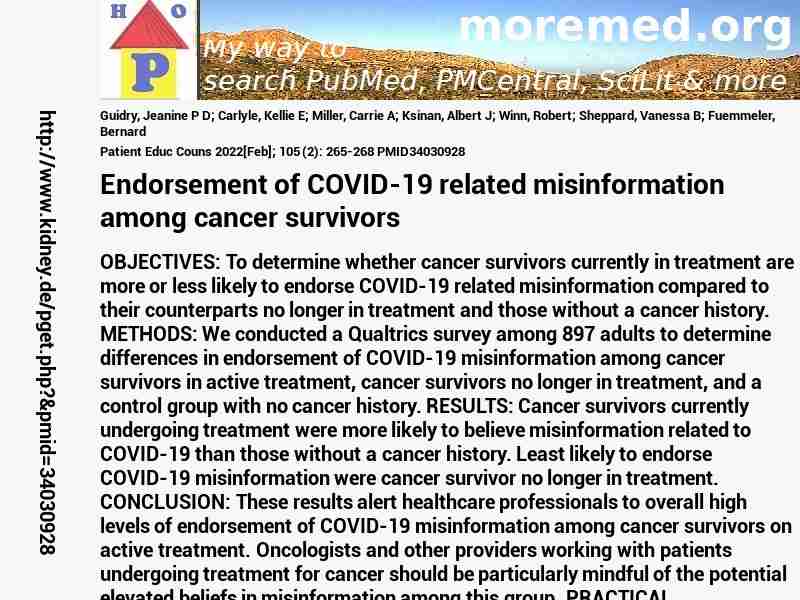10.1016/j.pec.2021.05.026
http://scihub22266oqcxt.onion/10.1016/j.pec.2021.05.026

34030928!8139169!34030928
 free free
 free free
 free free
|  
Deprecated: Implicit conversion from float 227.6 to int loses precision in C:\Inetpub\vhosts\kidney.de\httpdocs\pget.php on line 534
Deprecated: Implicit conversion from float 227.6 to int loses precision in C:\Inetpub\vhosts\kidney.de\httpdocs\pget.php on line 534
Deprecated: Implicit conversion from float 227.6 to int loses precision in C:\Inetpub\vhosts\kidney.de\httpdocs\pget.php on line 534
 Patient+Educ+Couns 2022 ; 105 (2): 265-268 Patient+Educ+Couns 2022 ; 105 (2): 265-268
Nephropedia Template TP
gab.com Text
Twit Text FOAVip
Twit Text #
English Wikipedia
|

 free
free free
free free
free